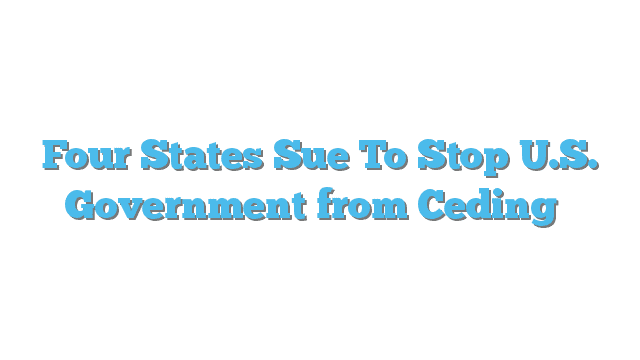A U.S. Department of Commerce contract with the Internet Corporation for Assigned Names and Numbers, or ICANN, is set to expire Friday. ICANN, formed in 1998, manages domain names and assigns Internet service provider numbers.
In June, the Department of Commerce and the National Telecommunications and Information Administration announced that ICANN had submitted a proposal for complete privatization of the system, and that the United States would relinquish stewardship when the contract expires.
The Republican attorneys general from the four states filed the lawsuit Wednesday in federal court in Galveston, Texas. They say the states “will lose the predictability, certainty, and protections that currently flow from federal stewardship of the Internet and instead be subjected to ICANN’s unchecked control,” the lawsuit alleges.
The suit says that President Barack Obama’s plan to hand over control of the Internet in an illegal transfer of U.S. government property and that it requires congressional approval.
“Trusting authoritarian regimes to ensure the continued freedom of the Internet is lunacy,” Texas Attorney General Ken Paxton said in a statement. “The president does not have the authority to simply give away America’s pioneering role in ensuring that the Internet remains a place where free expression can flourish.”
Texas Sen. Ted Cruz has been vocal in his opposition to the move, saying the United States is “giving away the Internet.”
The ICANN board of directors is overseen by the Governmental Advisory Committee, which includes 111 countries, including China, Russia and Iran. But according to the organization’s website, countries don’t control the Internet.
“The United States government’s contract with ICANN does not give the U.S. any power to regulate or protect speech on the Internet … The freedom of any person to express his or herself on the globally interoperable Internet is in fact enhanced by the transition moving forward.”
Assistant Secretary of Commerce Larry Strickling said Internet freedom is best preserved by handing it over to those who use and operate the networks.
“Free expression is protected by the open, decentralized nature of the Internet, the neutral manner in which the technical aspects of the Internet are managed and the commitment of stakeholders to maintain openness,” Strickling said at the Internet Governance Forum in Washington in July.
He noted “privatizing the domain name system has been a goal of Democratic and Republican administrations since 1997.”
The case will be heard on Friday afternoon in Galveston, Texas, before Judge George Hanks of the U.S. District Court for the Southern District of Texas.
Hanks was appointed to the bench by President Barack Obama in 2015.
© 2016 UPI Top Stories
syndicated under contract with NewsEdge. -.







